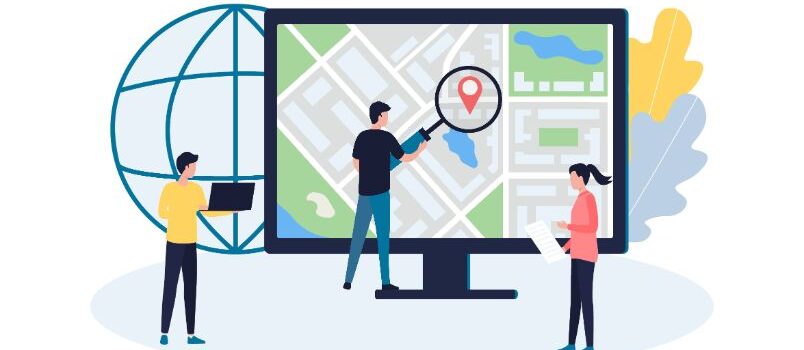Online tracking has become a constant, ever-growing headache for internet privacy enthusiasts. With social media platforms, tech companies, and advertisers infusing every web page and app with tools for surveillance, no one is safe.
With so many access points to our private data, modern businesses can profile visitors by their IP address, device’s operating system, browser version, and tons of data in personal accounts throughout the web. With the newest hardware and software designed to invade and collect user data, internet privacy enthusiasts are constantly looking for solutions to preserve online anonymity.
In this article, we will discuss ways to stop and prevent online tracking, which websites and pages pose the biggest danger to online privacy and the best tools to prevent it. Anonymity is a necessity, not only for an average browsing experience but also for data-oriented business tasks like web scraping. For such cases, lightweight privacy tools like residential proxies are in high demand because they help companies prevent online tracking. Once we know about the most effective solutions, applying them side-by-side is a great way to prevent privacy weaknesses.
Keep reading to learn more about residential proxies, why businesses are hungry for residential IPs, and what you can do to minimize online tracking.
Top privacy options: what options to look for?
Here we will discuss the best tools and choices you can make to improve your online privacy. Let’s start with the most obvious and effective solutions before we transition to more niche options.
Change your settings
Before focusing on internet privacy tools, we must focus on general settings for computers and smart devices that may compromise your online privacy. For PCs, most online tracking appears during our browsing sessions, where visited websites and social media platforms use cookies and third-party trackers to follow you in future browsing sessions. This can be avoided with privacy-oriented browsers like Brave that automatically block trackers and ads for a cleaner and more private online experience. Whatever browser you are using, make sure you disable third-party cookies in your settings.
For search engines, we have a situation where most platforms are operated by tech giants that default to as much private data collection as possible. You can choose less popular but privacy-oriented alternatives like DuckDuckGo and make sure to minimize data collection in settings if you run Google while connected to your Google account.
For mobile phones, the privacy situation is pretty grim. With most apps requesting access to your audio, video, and location data, portable smart devices give up a lot of information that can be used for online tracking. First, you can start off by checking the permissions each app has and disable access to files, location, and other information sharing.
Once we take care of settings, the digital footprint gets smaller but not small enough to prevent successful online tracking.
Get a user-agent
User-agents are simple yet powerful browser extensions that alter your browsing sessions. Web server owners get three crucial segments of information that can be used to profile, track, and identify users in the future: IP address, browser type, and the version of your operating system. User-agent displays information about your OS and browser during connection requests, and even if you change your IP in the future, this information can be used to connect the dots to the new address and continue tracking you.
A user-agent changes the displayed information about your browser and operating system, which helps to avoid online surveillance. Most user-agents are simple extensions that let you choose preferred versions of browsers and OS and even include Android and iOS options. However, for a smooth browsing experience, we recommend subtle changes that throw off trackers but do not hinder your loading times and overall quality of connections.
Use a proxy server
Proxy servers are usually a part of a network of intermediary devices with the purpose of wrapping your data packets with a new identity. With an additional stop, the information continues to travel under a different IP address and depending on the location of the server, the rules of such connection also change.
For example, not only do we keep the original IP address hidden, a connection to a proxy server in a remote country lets you unblock websites or streaming services otherwise unavailable in your region and enjoy the internet as if you were a resident of that country.
Proxy servers have two main categories: datacenter proxies and residential IPs. Datacenter proxies come from proper facilities where well-protected hardware servers have IP addresses assigned in bulk. Their connections are fast, but offered identities are not associated with Internet Service Providers (ISP). This means that a recipient web server can be instantly suspicious about your connection and desire to stay anonymous and block the address and other IPs in the same bulk for safety.
The real anonymity comes from residential proxies – addresses that come from real devices with an ISP. While they are slower, these connections become indistinguishable from regular internet traffic, letting you avoid tracking and use a different identity for every browsing session. For extra safety, most proxy providers offer rotating proxies that use a new IP address every few minutes, making sure nothing sticks to your browsing session.
Conclusion
Because we never know when we are really tracked, it’s a good idea to change as many things as you can and avoid logging in to social media platforms while browsing. Make sure your settings are tuned for maximum anonymity and use the tools and your disposal to stay private on the web.





